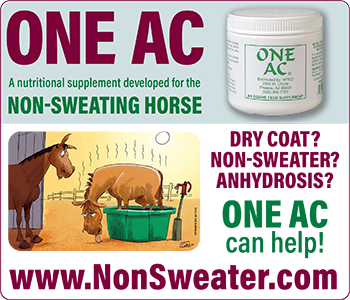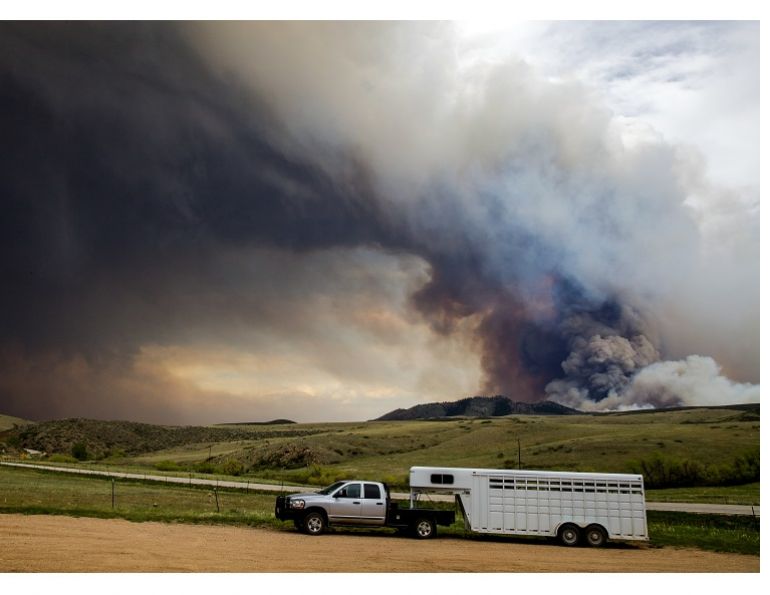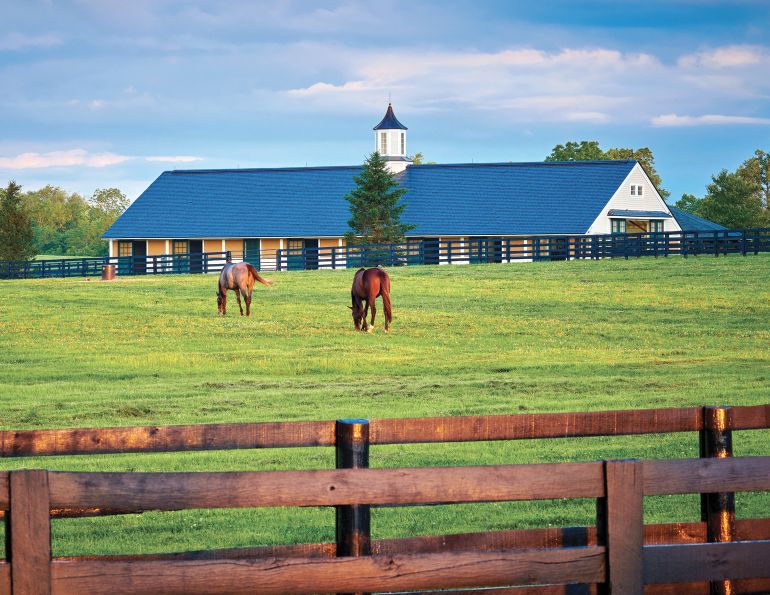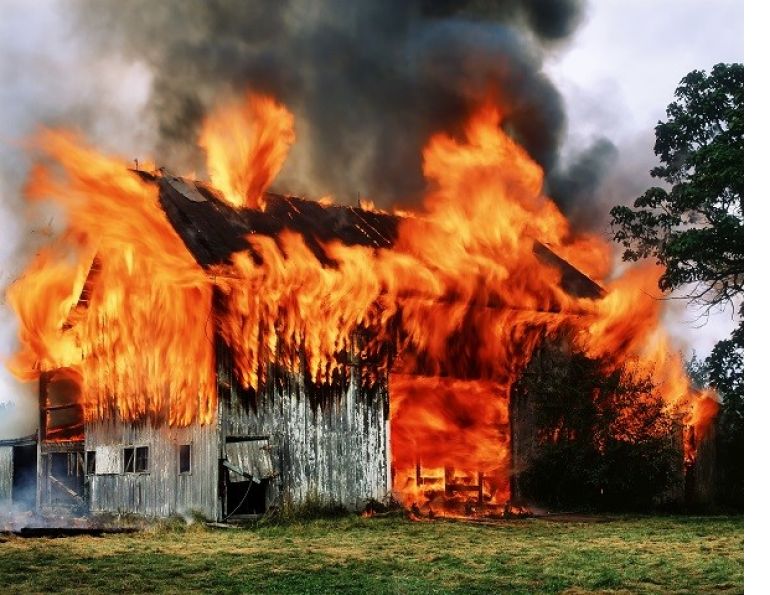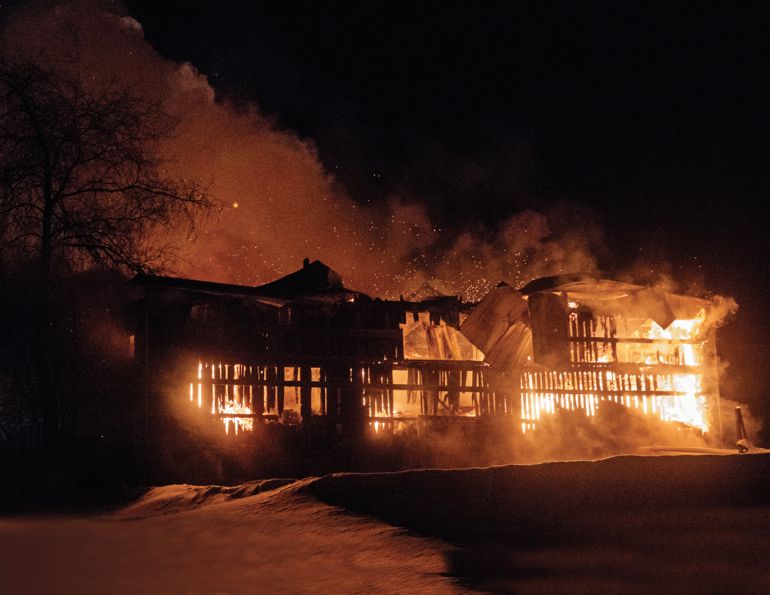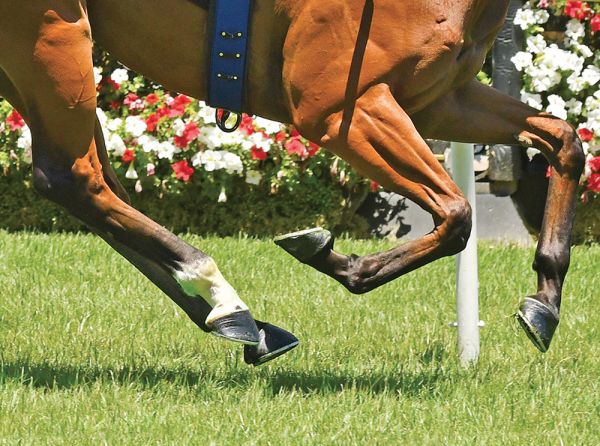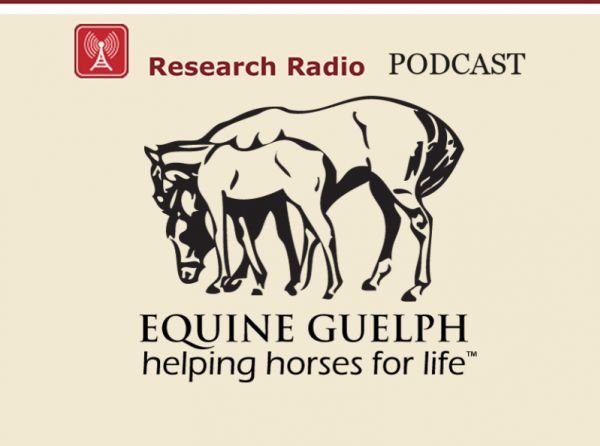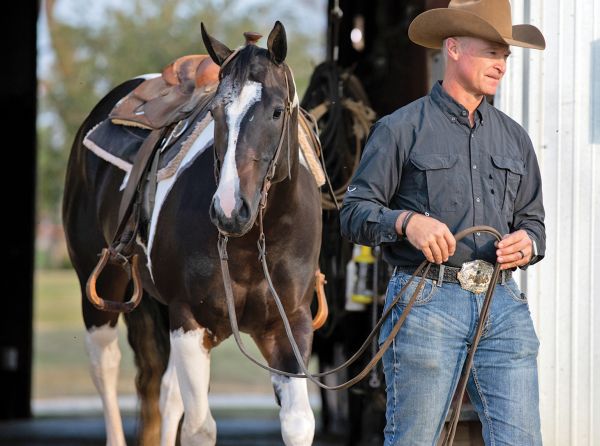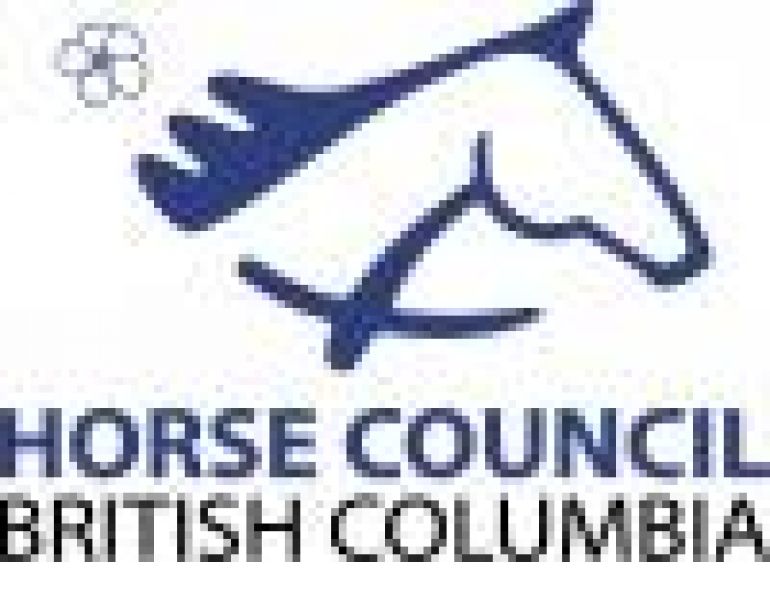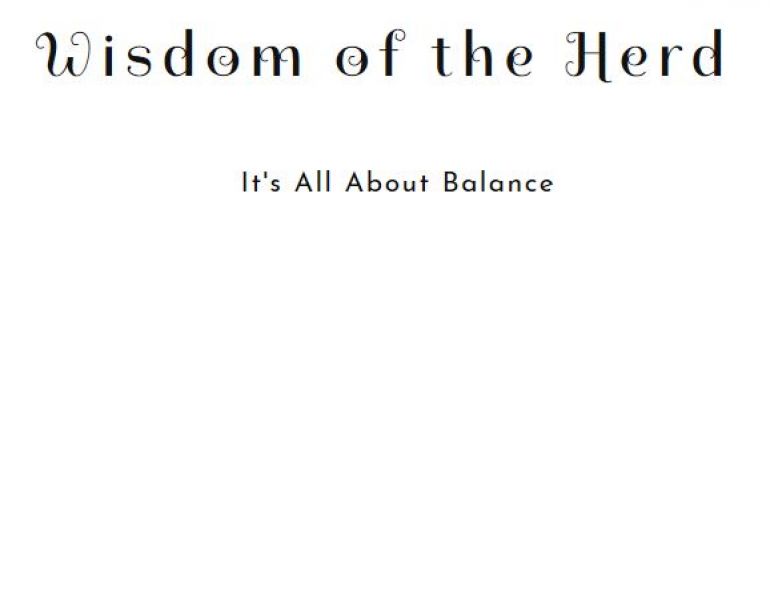Legal and Financial Considerations for First-Time Buyers
By Kelly Starrak, Associate, Miller Thomson LLP, Vancouver, BC
There is a certain allure to purchasing property. For most people, this means a quaint home, a cute front porch, and a white picket fence. For horse people, this dream is multiplied. We seek limitless green pastures, a barn built for royalty, crisp and clean horse-safe fencing, and more.
To turn this dream into a reality, careful planning is required. This article focuses on only a select few of the many legal and financial aspects to consider when making your first purchase of a horse property. This article does not provide legal or other professional advice. Those interested should reach out to their professional advisors as needed throughout their journey.

Careful thought and planning will be needed to make your dream a reality, with challenges to navigate and important decisions to be made at each step of the way. Photo: Shutterstock/Brett Blignaut
THE JOURNEY
The switch from browsing realtor listings to viewing and offering on properties is significant. There are several elements involved. Generally, the process is as follows:
Step 1 - You ensure you can afford it. Most people’s sources of payment include mortgage (borrowed) funds, savings and, in some cases monetary gifts. These financial aspects are touched on in more detail further in this article, but ultimately should be settled prior to your search for the perfect property.
Step 2 - You decide, within your affordability range, what amount you want to afford. You may be approved for a higher mortgage, or have the savings for a larger down payment, but also want to allocate certain funds to other parts of your life. It is up to you to consciously decide how much you truly want to commit to this property. You know your life goals and risk tolerance best.
Step 3 – You find the property of your dreams, or at least one that is within your means.
Related: The Barn Owner's Vacation Checklist
Step 4 – You make an offer on the property that is conditional on: (a) financing, including appraisal by your mortgage lender; (b) physical property inspection; and (c) any other conditions specific to that property, i.e., water testing if on well water and septic inspection if sewage is privately held. If the offer is accepted, or a revised offer is negotiated and agreed upon, you proceed with conducting investigations to satisfy your conditions.
Step 5 – If you are satisfied with your review, meaning that you are comfortable that the property is physically and financially suitable for you, you waive your conditions in writing by the condition deadline set in your offer. In doing so, you render the deal unconditional. If you are not satisfied with your review, you can either walk from the deal or try to negotiate a reduction in the purchase price to accommodate any issues discovered.
Step 6 – Once the deal is unconditional, you finalize any outstanding items with your bank, and you meet with your residential conveyancing lawyer to sign final mortgage and purchase documents. You deposit with your lawyer the cash portion of the purchase price, and you arrange property insurance over the property effective as of closing date set in the offer.
Step 7 – On the closing date, your lawyer will request and receive the mortgage portion of the purchase price from your bank, and will transfer that amount along with the cash portion of the purchase price to the seller’s lawyer. The seller’s lawyer will confirm receipt of the funds and authorize key release to you, and the purchase will complete.
Congratulations!

When calculating the financial commitment behind purchasing your horse property, allow for costs the bank might not consider. Horse care expenses, such farrier and veterinary services, can be more costly for smaller operations and those in remote locations. Commuting costs for work and activities may increase, and another vehicle may be needed. Photo: Dreamstime/Wakr10
SIMPLIFYING THE JOURNEY – OUR TOP TWO TIPS!
The above is a simplification of the process. At each step of the way, there will be issues to navigate and important decisions to be made. To simplify the journey, here are our top two tips:
1. Understand the Financial Commitment
The financial commitment in purchasing a property, and in particular a horse property, cannot be understated. According to Statistics Canada, the collective mortgage debt across Canada in early 2019 hit nearly $1.44 trillion, and the debt-to-income ratio of Canadians continues to climb. On an individual level, mortgages tend to be the largest sole debt accumulated in anyone’s lifetime.
Related: Living with Horses - A Place in the Country
Though often seen as an asset that will appreciate and provide strong return on investment, land involves numerous “sunk costs” that often are not considered prior to purchase. These include:
- Financing expenses, including interest and mortgage insurance fees
- Realtor expenses, including commission paid out of the seller’s portion on resale
- Legal expenses, including fees paid on the purchase and the sale
- Property taxes
- Utility payments
- House maintenance and repair
- Property maintenance and repair
- Specialized farm equipment and labour costs, including, when required, for farm sitting
- Commute costs, particularly where daily travel for work and activities is required
- Animal fees, particularly given that feed, farrier, and vet services may be at a premium for small scale operations and those in remote locations
When banks evaluate your suitability for a mortgage, only some of the above amounts are factored in. Even utility amounts are often underestimated; banks will consider the cost of heating, for instance, but not the costs of septic tank operation or the costs and logistics of installing and maintaining heated outdoor waterers. Each of these items can add up. The best you can do is plan thoroughly for the cost of your specific proposed use of the property and make an informed decision on that basis.

The financial commitment of purchasing property cannot be understated, and mortgages are usually the largest single debt accumulated in anyone’s lifetime. Photo: Shutterstock/Studio Newmarket
The financing expenses involved in obtaining a mortgage are rarely adequately understood by first-time home buyers. I have often met with buyers at the final stages of their purchase (at which point they are already committed to purchase) and have realized they do not understand the financial commitment they are making. And I do not blame them. The process is confusing and much of the marketing geared towards eager buyers does not even attempt to demystify the process.
On that note, and in my experience, three often-forgotten items to keep in mind when financing your first residential property, including your dream rural property, are:
Mortgage Insurance Requirements
If you pay less than 20 percent of the purchase price as your down payment (i.e., you pay less than $80,000 cash on the closing of a $400,000 property purchase), you are required to purchase “mortgage insurance” over and above the purchase price.
Mortgage insurance does not protect the purchaser. It protects the lender. The policy behind this rule is to protect the lender when lending in “riskier” situations (where the down payment is small) to encourage and facilitate the lender to lend in such situations. If a person defaults under this “insured mortgage,” the mortgage insurance kicks in to ensure the lender is made whole for the money it is owed.
Related: Building an Environmentally Sound Outdoor Riding Ring
In these situations, the liability on the purchaser is different than other mortgages.
- In non-insured mortgage situations (where the purchaser has put down 20 percent or more of the purchase price), the purchaser’s liability is generally limited to the equity in the house. If the purchaser defaults under the mortgage and foreclosure proceedings are commenced, the purchaser can generally “walk away” from the house without further liability than what can be recouped on foreclosure sale of that house by the lender. This makes sense as, in most situations, a 20 percent down payment should be a sufficient buffer to protect the lender and there should rarely be any excess owing after sale of the house.
- In insured mortgage situations (where the purchaser has put down less than 20 percent of the purchase price), also often referred to as “high ratio mortgages,” the purchaser’s liability is not limited in the same way. A purchaser that defaults in an insured mortgage situation is personally liable for all amounts owed after the sale of the house if the sale of the house is insufficient to repay those amounts. Again, this makes sense from a policy perspective. The lower the down payment, the lower the buffer is to protect the lender, and the more likely it is that the lender needs more assurances (in this case, mortgage insurance) to lend on the mortgage in the first place.

You may qualify for a higher mortgage, but decide how much you want to commit to the property, and whether you want to allocate some funds to other parts of your life. Photo: Shutterstock/LuXpics
The cost of mortgage insurance varies based on down payment and purchase price. By way of example, the mortgage insurance payable by the purchaser on a $400,000 property where the purchaser is putting down 5 percent is $15,200.00. For other amounts, the cost of the insurance will vary.
Your mortgage broker will factor in the cost of mortgage insurance when determining your mortgage eligibility for each specific property. To estimate the costs when browsing yourself, you can visit the Mortgage Calculator tab of www.cmhc-schl.gc.ca, and plug in the relevant numbers.
It is rare for purchasers nowadays to save 20 percent prior to purchasing. Payment of mortgage insurance fees is a reality for most purchasers. Do not be discouraged by this fact, but do be aware of this additional expense when deciding to purchase.
Related: Family Farms and Ranches
Mortgage Payment Details
In my experience, most people look at the mortgage payment estimated by their mortgage broker and think, “I can afford that out of my pay cheque every month.” What they often do not think about is the amount of money allocated to principal and interest.

Plan carefully for the additional expenses involved in using your property, and the corresponding need for equipment in each situation. Can a neighbour be hired for major work projects, or will you need to purchase your own equipment? Photo: Shutterstock/Crisp0022
Your mortgage payments serve two purposes: To repay the principal amount you borrowed for the purchase of the property, and to pay interest on that borrowed amount. Depending on the amortization of your mortgage (being how many years it must be repaid over, typically 25), the amount initially borrowed, and your interest rate, the principal and interest portions of the payment will vary. The amount of each can significantly affect how good your investment is and how much equity you are able to build up in the property.
There are several user-friendly mortgage calculators available on the internet for your use. The CMHC calculator referenced above is a good one, and most large banks have similar calculators online as well. I would encourage you to play around with different scenarios and see what you are most comfortable with in terms of mortgage amount and details prior to committing to purchase.
Early Mortgage Termination Fees
If you end your mortgage early (i.e., you need to sell your acreage after two years, you are not repurchasing a different property, and there are still three years left on your mortgage term), you will incur certain fees to do so. These include prepayment and administration fees, and can be significant.
Depending on your personal situation, you may want to accommodate the potential for early termination fees, or may want to structure your mortgage to be more flexible with a shorter term.
The Government of Canada has a very useful guide (available online at https://www.canada.ca/en/financial-consumer-agency/services/mortgages/break-mortgage-contract.html) to help you in your decision making in this regard.

Find advisors you can trust. A mortgage broker or lending advisor, a conveyancing lawyer, and a real estate agent with experience in properties suitable for horses can be of valuable assistance. Photo: Shutterstock/Budimir Jevtic
2. Find and Rely on Advisors You Trust
The above considerations are just a small sample of the factors you will want to keep in mind as you decide to purchase. I cannot stress enough that the easiest way to feel comfortable throughout the often confusing and stressful, yet very exciting, process of purchasing your first horse property is to find and rely on advisors you trust.
Primarily, these advisors include: A real estate agent, a mortgage broker or lending advisor, and a residential conveyancing lawyer. In each case, do not be afraid to interview, inquire about, and generally select individuals who understand and fit your needs.
A good real estate agent, particularly one with experience in rural and horse-suitable properties, can make an unbelievable difference. There is no such thing as a perfect horse property, and those agents who have viewed many and understand the market and farm life generally can be invaluable in guiding you towards properties with shortcomings you can happily live with, and away from properties with things that will ultimately be deal-breakers in day-to-day life.

Keeping your property looking its best will take hard work and investment in regular maintenance and repair. Photo: Shutterstock/Sue A Dunning
In terms of brokers and lawyers, do not be afraid to ask around for those as well. Some brokers only work with some lenders, and some lenders do not work with brokers at all. Some lawyers specialize in residential conveyancing and offer pricing or experience suited to your situation. Ensure you are comfortable with whomever it is you choose. Ask questions, go with what feels right. This is likely to be one of, if not the, most important purchase of your life, and it is important that you feel good about it each and every step of the way.
You may decide to simply browse the realtor listings with dreams of green fields until you know the time is right. Best of luck with your property hunt and purchase. Don’t hesitate to contact the writer should you have questions or wish to discuss.
To learn more about the practical considerations of purchasing horse property, please read The Dream of Buying an Acreage.
Related: 10 Tips to Help You Build a Better Barn Business
Related: 50 Ideas for Improving Your Horse Property
Kelly Starrak is called to the British Columbia bar and practices as a solicitor associate at Miller Thomson LLP’s Vancouver office. From a family of veterinarians, Kelly has been a lifelong horse enthusiast and grew up eventing in the lower mainland with some fantastic members of the horse community. Her legal practice now primarily focuses on commercial real estate and first nations land development, but she is happy to chat about this article and connect you with some individuals who can assist in your purchase. Don’t hesitate to reach out at 604.628.1202 or kstarrak@millerthomson.com.
This article is provided as an information service only and is not meant as legal advice. Readers are cautioned not to act on the information provided without seeking specific legal advice with respect to their unique circumstances and the applicable law in their province of residence.
Photo: Shutterstock/Lindsay Helms






